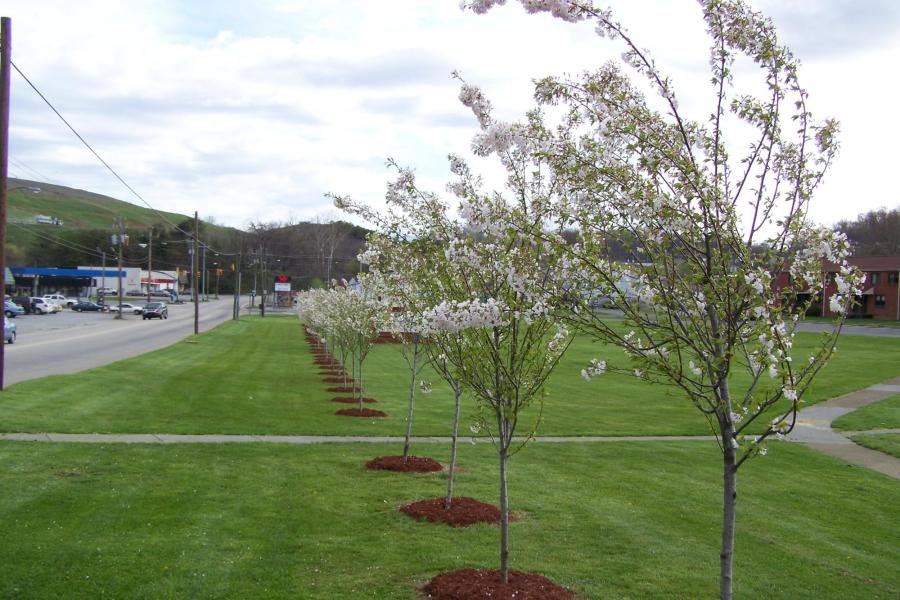Community Tree Planting Program applications now open for municipalities

Communities can optimize the benefits of trees with funding from the Tennessee Department of Agriculture’s Division of Forestry. Applications are now available for the Tennessee Agricultural Enhancement Program (TAEP) Community Tree Planting Program to increase and improve urban tree populations.
“The goal of the TAEP Community Tree Planting Program is to increase the urban tree canopy in cities and towns across Tennessee,” State Forester David Arnold said. “Healthy, structurally sound urban trees conserve energy, help prevent water pollution and soil erosion, beautify spaces, and can increase property value. I encourage all eligible groups to apply for funding to help their neighborhoods thrive.”
Eligible applicants include cities, local government agencies, educational institutions, and nonprofit organizations, such as neighborhood associations, civic groups, and community volunteer tree groups. Awards range from $500 to $20,000 for approved projects.
TAEP offers a cost-share program for tree planting on public property, rights-of-way, and private non-profit land with public access. Funds cover half the cost of trees and shipping, contracted planting, mulch, irrigation devices, tree labels, and acknowledgement signs. Funding recipients are required to use Tennessee-grown trees.
Projects can include planting on private property on a riparian area, which is a 35-foot transitional area between land that contains a mix of trees, shrubs, grasses and wildflowers and the edge of a river, stream, or creek bank.
The 2022 TAEP Community Tree Planting Program funded 19 projects serving 15 communities statewide with a total of 4,741 trees planted at a conservation investment of $123,573.
Proposals must be submitted electronically by emailing forestry.nashville@tn.gov by 4:30 p.m. CDT on Monday, June 2, 2023.
Find more information at www.tn.gov/agriculture/forests/urban.html.
For assistance with developing a grant project, contact Diane Warwick at 865-617-8829 or diane.warwick@tn.gov.
